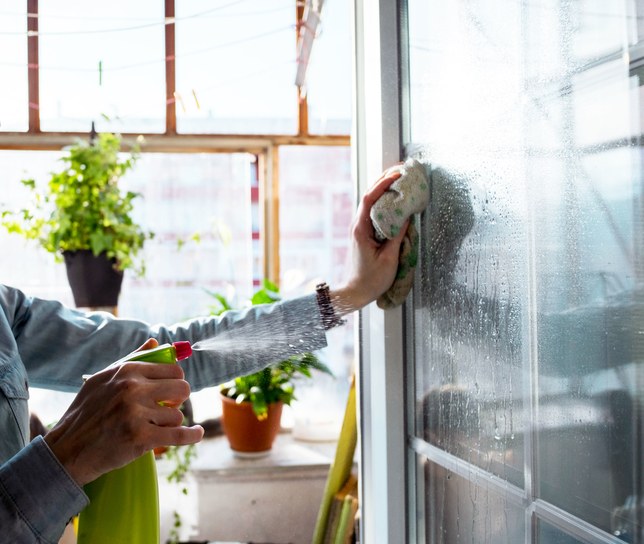Do Household Products Really Impact Your Fertility?

PHOTO: Aliyev Alexei Sergeevich
Fertility is a delicate thing. Research says a ton of things—from how stressed out you are to how much TV your partner watches—can affect your chances of getting pregnant. Another item to add to that list? Maybe the products around your house, according to a new study in Environmental Health Perspectives.
The authors tested urine samples of 211 women who had gone through IVF for organophosphate flame retardants (also known as PFRs)—chemicals found in baby products, cleaning products, upholstered furniture, car seats, mattress pads, some carpets, some nail polishes, building insulation, and other household products containing polyurethane foam. Those whose samples contained higher concentrations of PFRs were 10 percent less likely to undergo a successful fertilization. In addition, they were 31 percent less likely to have embryos implant, 41 percent less likely to have pregnancies confirmed by a heartbeat on an ultrasound, and 38 percent less likely to have live births, according to a press release.
The study’s lead author Courtney Carignan, an assistant professor at Michigan State University, told Glamour that PRFs can decrease fertility by interfering with your thyroid and sex hormones. There’s also some research suggesting that PRFs can lower sperm count, says Eric Levens, MD, a physician at Shady Grove Fertility. “The problem is that they are ubiquitous—and as a result difficult to avoid,” he says.
Carignan agrees: “PFRs and other flame retardants are very difficult to avoid because they are used in so many products in our homes, cars, and work/school environments,” she says. Many products that contain PFRs don’t have labels disclosing the ingredients, so you can’t always know when you’re being exposed to them.
But there are some ways to come in contact with fewer of them. They often get into your body through dust ingestion, which you can reduce by washing your hands. Cleaning your house with baking soda and vinegar could also help you avoid PFRs that may be in cleaning products, says Levens. Unfortunately, sticking to organic household products probably won’t do much. “Some of the solvents that cause a problem are technically ‘organic,'” says Dr. Daniel Shapiro, M.D., Reproductive Endocrinologist at Prelude Fertility.
Despite what some news outlets have reported, there isn’t any evidence that flame retardants are used in yoga mats, says Carignan, so there’s no need to avoid those.
Bottom line: if you’re trying to get pregnant, do what you can to avoid PFRs, but you can’t avoid them entirely, and that’s nothing to worry about. “The problem with PFRs is probably real, but the effect is probably not profound,” says Shapiro. “Good idea to give this point some consideration, but no need to modify one’s living habits to eliminate PFRs entirely.”



